National Medical Excellence Awards 2021
5 November 2021
Learn more about the recipients for the National Medical Excellence Awards 2021.
The National Medical Excellence Awards event was held on 5 November 2021 at Shangri-La Singapore, with Minister for Health, Mr Ong Ye Kung as the Patron and Guest of Honour. This year’s event combined the celebration of the winners from both 2020 and 2021. The NMEA 2021 year marks the 14th year of the awards, with four individuals and two teams recognised for their outstanding contributions and achievements.
The evening saw the presence of 50 guests at the hotel venue and more than 200 guests on the virtual platform, to celebrate the success of the awardees for innovations in healthcare, patient safety, clinical quality, biomedical research as well as training and education of clinicians.
The National Medical Excellence Awards 2020 & 2021 event was jointly organised by the Ministry of Health and National University Health, with support from Lee Kong Chian School of Medicine, National University Health System and System SingHealth Duke-NUS Academic Medical Centre.
Award Winners
National Outstanding Clinician Award
Professor Dale Fisher
National Outstanding Clinician Scientist Award
Professor Chong Siow Ann
National Outstanding Clinician Mentor Award
Associate Professor Wong Kok Seng
National Outstanding Clinician Educator Award
Professor Tan Hak Koon
National Outstanding Clinical Excellence Team Award
COVID-19 Research Workgroup
Associate Professor David Lye Chien Boon
Professor Lisa Ng Fong Poh
Dr Barnaby Young
Dr Chia Wan Ni
GPFIRST Programme
Clinical Associate Professor Steven Lim Hoon Chin
Clinical Associate Professor How Choon How
Ms Priscilla Goh
Dr Oh Hong Choon
Click here for the Minister’s speech
Click here for the media release.
Please see the details of our awardees as follows.
National Outstanding Clinician Award 2021
Professor Dale Fisher (戴尔弗斯尔教授)
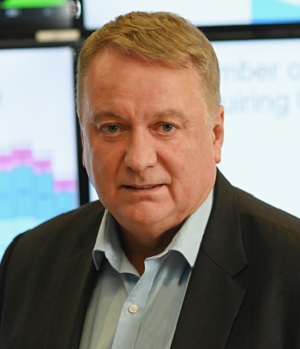
“For his outstanding leadership in advancing key initiatives in the areas of infection prevention and infectious diseases that have shaped and improved patient outcomes in Singapore and globally.”
About Professor Dale Fisher
Senior Consultant, Division of Infectious Diseases, Department of Medicine, National University Hospital
Professor, Department of Medicine, Yong Loo Lin School of Medicine, National University of Singapore
Group Chief, Medicine, National University Health System
Professor Dale Fisher is an internationally recognised infectious diseases expert.
Prof Fisher began his career in Singapore during the SARS outbreak in 2003, during which his contributions on the frontline earned him a Courage Medal. He went on to become one of three founding members of as well as Head of the National University Hospital’s (NUH) Division of Infectious Diseases. He has held many key positions within the hospital, driving internationally-regarded initiatives such as the Outpatient Parenteral Antibiotic Therapy clinic and the Acute Medical Unit. As Chair of the Infection Prevention and Control (IPC) Committee at NUH since 2006, he leads a team which has produced some of Singapore’s best clinical outcomes. Notably, he adopted an aggressive stance against Methicillin-Resistant Staphylococcus aureus (MRSA) infection, resulting in a significant decline in MRSA infection rates in NUH and nationally.
As Clinical Lead of the National University Health System (NUHS) Infectious Disease Community Pilot Programme, Prof Fisher and his team are making ground-breaking changes to the standards of care in long-term care facilities (LTCFs) with respect to infection prevention and control, antibiotic usage and referral for residents with fever. Based on the promising initial outcomes, there are plans to expand the programme at a national level. In his new appointment as Group Chief of Medicine at the NUHS from 2020, he will spearhead the harmonisation of clinical services across the cluster to improve patient outcomes.
Beyond NUHS and since 2014, Prof Fisher has been the foundation chair of the National Infection Prevention and Control Committee (NIPC), which established national guidelines that are now Singapore’s benchmarks.
Being a passionate advocate for improving global patient outcomes, Prof Fisher actively works with international organisations such as the World Health Organization (WHO). He was involved in the Ebola response in Liberia from 2014 to 2015 and has assisted governments in several countries during H1N1 influenza outbreaks for over a decade. Additionally, he has facilitated many training programmes for international outbreak response and IPC globally. Since 2014, he has chaired and participated in many WHO guideline development groups, alongside experts from multiple disciplines to develop WHO guidelines. Since 2018 he has chaired the WHO’s Global Outbreak Alert and Response Network (GOARN).
Prof Fisher’s expertise has come to the forefront in the COVID-19 pandemic response, both locally and globally. He was one of 12 international experts selected for the first WHO-China Joint Mission on COVID-19 to China to investigate and advise on interventions to guide the global response. A member of the WHO Health Emergencies Programme (WHE) Experts Advisory Panel he regularly convenes with the WHO and GOARN leadership as well as IPC network leads to discuss global concerns and strategies.
Prof Fisher has also strategically established a national and global media profile to help engender public trust in the pandemic response. Beyond the lay media, he is a well sought-after speaker at academic webinars locally and internationally and is a driving force in the National University of Singapore’s COVID-19 update series comprising 36 parts to date. He has also featured in countless other platforms including peer reviewed journals and even comic strips to enhance Risk Communication and Community Engagement (RCCE). During the COVID-19 outbreak at the foreign worker dormitories in Singapore, Prof Fisher advised on strategies for managing the ground situation and establishing mechanisms for two-way communications. RCCE continues to be developed via a new network of stakeholders he helped establish called “My Brother SG”. This initiative has received WHO funding to develop a sustained system to support future COVID-19 needs as well as chronic diseases and mental health issues in foreign workers.
For his outstanding leadership in advancing key initiatives in infection prevention and infectious diseases that have shaped and improved patient outcomes in Singapore and globally, Prof Fisher is awarded the National Outstanding Clinician Award 2021.
National Outstanding Clinician Scientist Award 2021
Professor Chong Siow Ann (莊紹安)
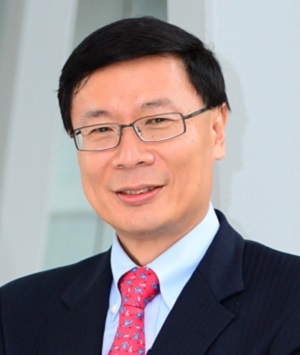
“For his outstanding contributions to mental health research and treatment, and changing the perception of mental illness.”
About Professor Chong Siow Ann
Senior Consultant, Research Division and Department of Psychosis, Institute of Mental Health
Adjunct Professor, Saw Swee Hock School of Public Health, National University of Singapore
“Never give up on a patient, no matter how complicated things may be” – this principle has guided Professor Chong Siow Ann since he joined the Institute of Mental Health (IMH), then Woodbridge Hospital, in 1989. His dedication to doing the best for his patients has helped many reclaim their lives from mental illness. It also gave him the impetus to advance mental healthcare through research that contributes to a better understanding of mental disorders, and improves outcomes and quality of life for individuals with mental illness.
In 2001, Prof Chong spearheaded the development of the Early Psychosis Intervention Programme (EPIP) at IMH. EPIP was the first of its kind in many ways. It focused on shortening the duration of untreated psychosis to achieve better long-term clinical, social and occupational outcomes for young people with psychotic disorders. To this end, it established and drew on an extensive network of community partners, including primary healthcare providers, general practitioners, tertiary institutions and social service agencies, to enable early detection and intervention. The programme also involved case management in a psychiatric setting for the first time to support patients in their recovery. Prof Chong’s outstanding work was recognised with the prestigious World Health Organization’s (WHO) State of Kuwait Prize for Research in Health Promotion in 2006, and the inaugural National Clinical Excellence Team Award by the Ministry of Health in 2008.
In 2007, Prof Chong initiated the first-ever Singapore Mental Health Study, which provided a comprehensive insight into the mental health status of adults aged 18 and above in Singapore. The three-year study established the prevalence of the common mental disorders here, their associated factors, the treatment gap of the disorders, as well as the help-seeking behaviour of the local population. He also led the Well-being of the Singapore Elderly (WiSE) Study in 2013 to determine the prevalence of dementia and the extent and nature of caregiver burden; and Mind Matters: A Study of Mental Health Literacy in 2014 to examine the mental health literacy of the local adult population and the extent of stigma associated with mental illness. These national studies led to previously unavailable information, which not only addressed real-world questions relevant to persons with mental illness, their families and healthcare providers, but also guided the formulation of effective national mental health policies.
In the past three decades, Prof Chong has advanced key areas of research in tardive dyskinesia, psychopharmacology, genetics of schizophrenia, early psychosis, epidemiology and health services research. As Chairman of the Subcommittee for Research for the National Mental Health Blueprint, he was instrumental in developing the research strategy to strengthen the mental well-being of Singaporeans. As Vice Chairman of Medical Board (Research) in IMH from 2006 to 2021, he created a vibrant culture of research within the organisation, which led to the establishment of two robust programmes – Programme for Translational and Clinical Research; and Programme for Mental Health Policy Research. Under his leadership, IMH has built up an extensive platform for cross-disciplinary collaboration with research centres locally and globally and secured more than $71 million of extramural funding for research since 2000.
In the international arena, Prof Chong led a team of researchers from Singapore, the United States, Australia and Hong Kong, on a cutting-edge five-year Translational Clinical Research in schizophrenia and related psychoses in 2008 to identify the biomarkers for this group of disorders. The findings of this $25 million project provided significant insights into schizophrenia and related psychosis and also placed Singapore on the world map.
Prof Chong has contributed peer-reviewed papers, editorials, commentaries as well as book chapters to over 450 publications, and is an associate editor and member of editorial boards of major international journals. He is passionate about engaging the wider community to tackle misconceptions and stigma surrounding mental illness, and has written more than a hundred opinion pieces highlighting psychiatric practices and research as an expert contributor to The Straits Times. For his outstanding contributions to mental health research and treatment and changing the perception of mental illness, Prof Chong is awarded the National Outstanding Clinician Scientist Award 2021.
National Outstanding Clinician Mentor Award 2021
Associate Professor Wong Kok Seng (黄国城)
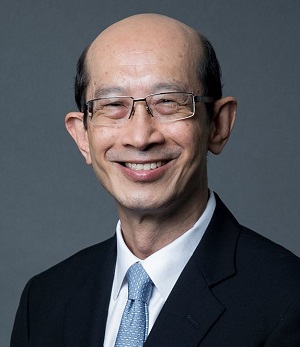
For his exemplary contributions and unwavering commitment to being an active role model in guiding and training young clinicians.”
About Associate Professor Wong Kok Seng
Deputy Chief Executive Officer, Clinical Services, SingHealth Community Hospitals
Senior Consultant, Internal Medicine and Renal Medicine, Singapore General Hospital
Clinical Associate Professor, Duke-NUS Medical School
As the Deputy Chief Executive Officer for Clinical Services at SingHealth Community Hospitals (SCH), Associate Professor Wong Kok Seng plays a pivotal role in providing medical leadership, mentorship and policy oversight to a young SCH team as they strive to establish clinical models and bridge care for the delivery of affordable quality healthcare services in community hospitals.
A firm believer of nurturing the next generation, A/Prof Wong has knitted countless mentoring relationships with junior doctors. Many are inspired by his perseverance in pursuing the greater good in Medicine, and his encouragement to forge new grounds as they progress in their careers.
A/Prof Wong, who was the Head of Department of Renal Medicine in Singapore General Hospital from 2002 to 2008, went on to head the Department of Internal Medicine from 2012 to 2018, growing it to double its strength to meet service needs. In both instances, A/Prof Wong attracted and retained aspiring talent to join the specialties, ensuring future sustainability for the profession. This could not have been accomplished without the close mentoring relationships forged between him and the talents.
Known for his nurturing mentorship, his mentees often turn to him for his wisdom and advice on facilitating good working relationships with different stakeholders of the healthcare family. His approach to problem-solving inspires many who have worked with him before - to first understand before being understood; whereby, he listens, gives his trust, and then offers his guidance.
An avid learner and advocate for medical education and mentoring, he collaborated with colleagues from Duke-NUS Medical School and Duke University to organise faculty development courses to equip his senior residents and young consultants to be better teachers and mentors. At the national level, his leadership position in medical education allows him to better align the delivery of education and clinical services with national goals and aspirations.
A/Prof Wong regards staff development as fundamental in providing adequate care and service to patients. He was instrumental in sending a multidisciplinary SCH team overseas to learn from international clinical experts, and also initiated design thinking workshops, a quality improvement framework and roadmap to upskill the SCH team. The SCH Research & Translational Innovation Office (RTIO) was also established under his leadership and mentorship, opening the doors to more novel and cost-effective care models for the future.
A clear mind, steadfast leadership, and a nurturing heart are the hallmarks of what make A/Prof Wong the model collaborative leader and mentor. The highly respected clinician is responsible for building strong teams, and also in nurturing future generations of clinician leaders through his passion in mentoring and education. For his exemplary contributions and unwavering commitment to being an active role model in guiding and training young clinicians, A/Prof Wong is awarded the National Outstanding Clinician Mentor Award 2021.
National Outstanding Clinician Educator Award 2021
Associate Professor Tan Hak Koon (陈学崐)
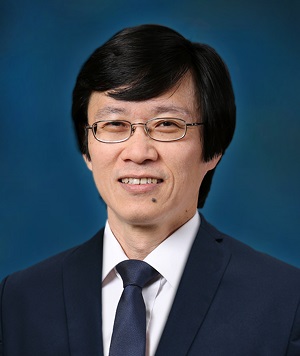
“For his inspiring dedication and exemplary contributions in advancing Obstetrics and Gynaecology clinical education in Singapore and beyond.”
About Associate Professor Tan Hak Koon
Chairman and Chief of Obstetrics, Division of Obstetrics and Gynaecology, KK Women’s and Children’s Hospital
Academic Chair, SingHealth Duke-NUS Obstetrics and Gynaecology Academic Clinical Programme
Designated Institutional Official, SingHealth Residency
Associate Dean, Residency Education, Office of Academic and Clinical Development & Clinical Professor, Duke-NUS Medical School
Professor Tan Hak Koon is a recognised and respected obstetrician with specialty in high-risk obstetric care and maternal foetal medicine. Having dedicated his entire professional life in the public healthcare sector for over 30 years, Prof Tan has significantly contributed to the advancement of obstetrics and gynaecology (O&G) clinical care, research and education at institutional, national and international levels.
Prof Tan is a compassionate, nurturing and astute clinician leader who adopts a multifaceted approach to healthcare management. To continuously develop and improve patient care, he remains actively engaged on the ground while holding various senior leadership roles. In addition to his clinical and research achievements in O&G, he has also made exemplary contributions towards the advancement of O&G clinical education.
Since the 1990s, Prof Tan has mentored and nurtured numerous young doctors, medical students, clinician scientist residents, and even nurses and allied health professionals. He constantly engages residents, who are the future talent to the healthcare system, to ensure that their needs are addressed. As a result of his efforts, Prof Tan has pivoted key changes in O&G graduate medical education. He improved the clinical learning environment for residents and established a ‘crisis management pathway’ in 2018, which provided a structured framework to guide the actions following any signs of distress or coping difficulties in residents, thereby enabling prompt intervention to take place.
Prof Tan’s dedication towards training and education has remained unfettered since the onset of COVID-19 pandemic. The pandemic’s impact on residency training was unprecedented. Prof Tan acted swiftly by working closely with various stakeholders to mitigate the impact through the implementation of measures especially in areas of curriculum, progression, examination, and teaching methodologies. Through these strategies, there were no delays in the progression of the residency training, and final year residents graduated on time despite the disruption caused by COVID-19.
Residents were continually engaged during COVID-19 through virtual events. Prof Tan also endorsed an online overseas medical education programme that had benefited over 900 overseas medical students in 2020. Chaired by Prof Tan, the SingHealth Duke-NUS Obstetrics and Gynaecology Academic Clinical Programme, involving KK Women’s and Children’s Hospital (KKH) and Singapore General Hospital (SGH), aims to improve women’s health and well-being through clinical initiatives, education, research and collaborations. KKH and SGH see about 40 per cent of pregnant women in Singapore and perform 60 per cent of all gynaecological procedures in Singapore.
Beyond SingHealth, Prof Tan has taken on key roles in O&G medical societies in Singapore, formulating educational activities, developing clinical guidelines, planning postgraduate examinations, and providing expert opinion to committees in the Ministry of Health (MOH). He currently sits on committees in MOH, overseeing O&G medical education and training which will play a part in policy making and shaping the future training of O&G specialists in Singapore.
Extending a helping hand to developing countries, Prof Tan has been instrumental in an international voluntary programme to enhance maternal and child health services in government healthcare institutions in 26 districts of India. The programme equipped 200 healthcare workers with skills to manage obstetrics emergencies, and has benefited more than 100,000 mothers and newborns annually, with the maternal mortality rate of the state of Karnataka being reduced by half.
For his inspiring dedication and exemplary contributions in advancing O&G clinical education in Singapore and beyond, Prof Tan is awarded the National Outstanding Clinician Educator Award 2021.
National Clinical Excellence Team Award 2021
COVID-19 Research Workgroup
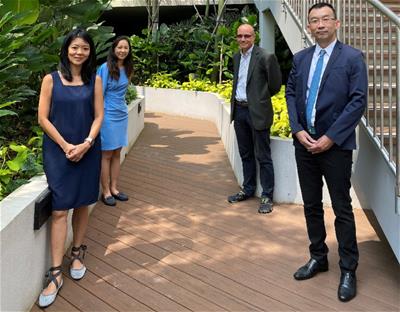
“For their instrumental contributions and significant achievements in COVID-19 research, and management of the pandemic response in Singapore and globally.”
Associate Professor David Lye Chien Boon (赖建文)
Senior Consultant, National Centre for Infectious Diseases
Director, Infectious Disease Research and Training Office, National Centre for Infectious Diseases
Associate Professor, Yong Loo Lin School of Medicine, National University of Singapore
Associate Professor, Lee Kong Chian School of Medicine, Nanyang Technological University
Professor Lisa Ng Fong Poh (伍芳葆)
Executive Director, Biomedical Research Council, Agency for Science, Technology and Research
Executive Director, A*STAR Infectious Diseases Labs (ID Labs), Agency for Science, Technology and Research
Dr Barnaby Young
Consultant, National Centre for Infectious Diseases
Head, Singapore Infectious Disease Clinical Research Network and, NCID Research Clinic, Infectious Disease Research and Training Office, National Centre for Infectious Diseases
Dr Chia Wan Ni (谢宛妮)
Research Fellow, Emerging Infectious Diseases Programme, Duke-NUS Medical School
About COVID-19 Research Workgroup
The year 2020 presented an unprecedented challenge for healthcare systems across the world. With reported COVID-19 cases rising in Asia, there was an urgent need to understand the novel coronavirus. This led to the establishment of the COVID-19 Research Workgroup (RWG), chaired by Professor Leo Yee Sin, Executive Director, National Centre for Infectious Diseases (NCID), with Associate Professor David Lye, Director, Infectious Disease Research and Training Office, NCID as Deputy Chairman, and advised by Professor Tan Chorh Chuan, Chief Health Scientist, Ministry of Health (MOH). The RWG convened on 22 January 2020, a day before Singapore reported its first confirmed COVID-19 case, aimed at conducting studies to better understand COVID-19 and its transmission in Singapore.
A critical component of the RWG’s research was “PROTECT” – a multi-centre prospective study to detect novel pathogens and characterise emerging infections according to a pre-established outbreak drawer protocol developed in 2012 and coordinated by NCID. This protocol served as a foundation platform covering all public hospitals in Singapore, and enabled the collection of clinical data and biological samples for research. The first PROTECT subject was recruited on 24 January 2020, and as of December 2020 over 600 COVID-19 patients had participated.
The RWG has made significant research contributions in the COVID-19 pandemic, including the development and validation of diagnostic tools, deeper insights and understanding of virus pathogenesis and transmission, biomarkers of disease severity, investigation of COVID-19 clusters in Singapore, characterisation of environmental contamination with the SARS-CoV-2 virus, development and evaluation of potential therapeutic agents, and a greater understanding of the socio-behavioural aspects of the pandemic on healthcare workers and other segments of the community. These research efforts in turn led to improved standards of care, diagnosis, health outcomes, and management of COVID-19 patients both locally and globally.
To date, the RWG has contributed to some 212 publications. Notably, 23 of these publications are top-tier scientific journals, including the New England Journal of Medicine, The Lancet, JAMA, Science, Nature, and Cell.
Importantly, the RWG’s research findings have been translated and incorporated into investigation of outbreaks, infection control measures, and public health policies on quarantine and isolation, as well as the development of diagnosis and treatment methods benefitting patients and the wider community, both locally and internationally. Some of the significant diagnostic tools and treatments against COVID-19 include the world’s first SARS-CoV-2 neutralisation antibody test (cPassTM) to identify people previously infected with the virus and who subsequently developed an adaptive immune response; the use of remdesivir and baricitinib in the treatment of COVID-19 patients in Singapore, through the RWG’s participation in international clinical trials led by the United States’ National Institutes of Health and which contributed to national and international treatment guidelines; and the provision of patient samples used to develop the Regeneron monoclonal antibodies, which have since been shown to be effective in treating hospitalised patients with severe COVID-19 in the RECOVERY trial in the United Kingdom.
For their instrumental contributions and significant achievements in COVID-19 research, and management of the pandemic response in Singapore and globally, the COVID-19 RWG is awarded the National Clinical Excellence Team Award 2021.
National Clinical Excellence Team Award 2021
GPFIRST Programme
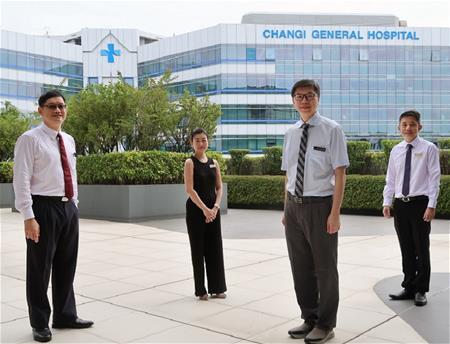
“For their timely contributions in enhancing Accident & Emergency efficiencies and shaping a holistic and collaborative healthcare ecosystem with better health outcomes for the community.”
Clinical Associate Professor Steven Lim Hoon Chin (林训进)
Senior Consultant, Accident and Emergency, Changi General Hospital
Programme Director, GPFirst, Changi General Hospital
Clinical Associate Professor, Duke-NUS Medical School
Clinical Associate Professor How Choon How (侯俊豪)
Senior Consultant, Family Physician, Changi General Hospital
Director, Primary Care, SingHealth Office of Regional Health, Changi General Hospital
Ms Priscilla Goh (吴素卿)
Manager, Primary Care Integration, GP Engagement, Changi General Hospital
Dr Oh Hong Choon (胡鸿春)
Assistant Director, Health Services Research, Changi General Hospital
Assistant Director, Health Services Research & Evaluation, SingHealth Office of Regional Health
Adjunct Assistant Professor, Duke-NUS Medical School
About GPFIRST programme team
The GPFirst programme, an initiative spearheaded by Changi General Hospital (CGH) in 2014, was designed to improve the efficiency of Accident & Emergency (A&E) services for better management of patient load, and to optimise the prioritisation of care for patients requiring emergency treatment. The programme aims to encourage patients with mild to moderate conditions to visit a General Practitioner (GP) instead of presenting themselves at the A&E Department at first instance.
In right-siting care, the GPFirst team adopted a multipronged approach, which involved reducing the number of non-emergency cases seen at the A&E; engaging, empowering and collaborating with GPs to enhance their management of mild-to-moderate conditions within the community; and shaping healthcare-seeking behaviours in the community.
A joint study by CGH and Singapore University of Technology and Design showed that individuals who perceive their medical conditions to be critical were 3.5 times more likely to visit the A&E, even if their condition could be attended to by GPs. Recognising the need for a paradigm shift in mindsets, behavioural nudges were incorporated in the data-driven programme to help individuals rethink the level of care needed when they are making decisions on where they should seek treatment. Patients who are referred to the A&E by the participating GPs will be accorded priority over minor emergencies and they will also receive a $50-subsidy to offset their A&E attendance fee.
The GPFirst team also carried out public education campaigns to improve health literacy and empower the community in making their choice of healthcare provider wisely. Partnerships with the People’s Association, Community Centres and Resident Committees were forged to further increase the programme’s reach through community outreach events.
Through the development of GPFirst, the programme team has established strong collaborations with the network of 305 GP clinics in the eastern region of Singapore. To date, more than 80% of GP clinics in the network have participated in the regional primary care programmes, forming a lively eco-system to provide accessible, holistic and integrated care with better health outcomes for patients.
GPs in the GPFirst programme were invited to Continuing Medical Education activities to enhance knowledge-sharing in managing mild-to-moderate conditions within the community and improve the quality of care. The active engagement and collaborations with GPs increase their management of these conditions and contribute to their role as “gate-keepers” to A&E services. GPs are also able to reach out to a CGH A&E consultant via a 24/7 hotline.
The GPFirst programme has benefitted more than 33,000 patients in the East from 2014 to 2019. It also saw a 14 percent reduction in proportion of attendances at CGH A&E with mild and moderate conditions and a 36.6 percent reduction in walk-in attendances. Referral appropriateness under the programme has maintained at 97 percent since 2016. The reduction enhances the A&E’s ability to achieve greater streamlining of valuable resources to focus on emergency care, thus providing more timely treatment. In a survey of patients who experienced the programme, 87.3 percent of participants rated their overall experience as good or excellent, with 92.3 percent of them stating that they would recommend family and friends to visit the same GPFirst clinic for mild-to-moderate conditions prior to any A&E visit.
Following the successful rollout of GPFirst programme in CGH, coupled with the strong support across multi-disciplinary teams in the hospital, the GPFirst team worked closely with the Ministry of Health (MOH) and other local public hospitals in the sharing of its programme experience to facilitate the expansion of the programme on a national level. The GPFirst programme has since been implemented in other hospitals including Khoo Teck Puat Hospital, National University Hospital, Ng Teng Fong General Hospital, Sengkang General Hospital, and Woodlands Health Campus to-date. The GPFirst team continues to be MOH’s key partner in facilitating care shifts from the hospital to the community by expanding the GPFirst programme to more healthcare institutions.
For their timely contributions in enhancing Accident & Emergency efficiencies and shaping a holistic and collaborative healthcare ecosystem with better health outcomes for the community, the GPFirst team is awarded the National Clinical Excellence Team Award 2021.
